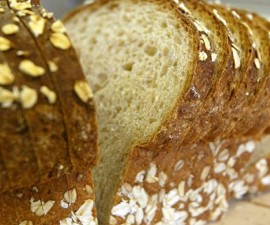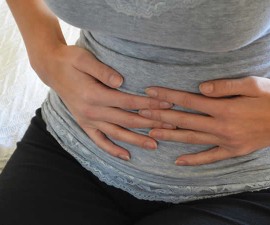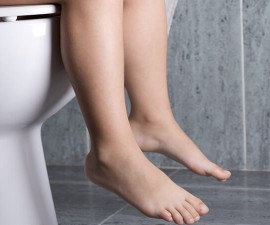Getting constipation while pregnant can be very bothersome. Luckily, it’s usually manageable and treatable. Many times, some lifestyle measures are enough to cope with it. For instance, your diet does help prevent and treat it! Here is brief summary of lifestyle measures, what to avoid, and what to eat!
How and why do pregnant women get constipated?
The definition of normal bowel movement can vary from person to person. But when it becomes less frequent with hard stools and difficult to pass, you may have constipation.
The cause of constipation during pregnancy is not fully known. Many experts believe that there are several factors conspire to cause the problem. In early pregnancy (first trimester), the occurrence of constipation is likely to be associated with the following factors:
- The increased level of progesterone production. It’s undeniable that this hormone plays a key role to causes changes what we see in early pregnancy. As the body changes for baby growth, you may experience some discomfort symptoms such as constipation, nausea, vomiting, and more. High progesterone may relax intestinal muscles, making them less capable of moving wastes.
- Iron supplements. Pregnancy is one of conditions when you need more iron. For this reason, it’s recommended to eat more iron from dietary sources. If necessary, your doctor may also suggest taking iron supplements. But in some cases, iron supplements affect bowel movement too.
- Other factors such as lack of physical activity, dehydration, stress, anxiety, etc. Most conditions that cause constipation in non-pregnant women can also contribute to cause pregnancy constipation.
At late stages of pregnancy, constipation is usually caused by the following conditions:
- The same causes mentioned earlier (in early pregnancy).
- In late pregnancy, the baby growth (enlarged uterus) has been strong enough to cause more pressure to the bowel, making the wastes more difficult to pass.
- Other factors such as pelvic pain and tailbone pain (pain at the bottom of the spine) during pregnancy.
How soon can constipation occur in pregnancy?
Due to the aggressive hormonal changes, some pregnant women may get constipated very early. In fact, constipation can also be an early sign of pregnancy in some cases. In a few cases, it may only be found in late pregnancy.
So the answer varies from woman to woman. The same goes for how long it will last. Again, it can be attributed by several different factors.
Constipation is quite common in pregnant women. Pregnancy hormone is to blame for the cause, though the exact cause is not fully understood yet. When does it occur in pregnancy? This can vary – but in general, it can occur anytime over the course of the pregnancy.
What to eat for constipation while pregnant?
What can pregnant women take for constipation? There are a whole host of treatments available to relieve constipation, from home remedies to over-the-counter pills. But as a first line of action, dietary approaches can help a lot to deal with the problem. It’s also safe way if you’re being pregnant.
Are there any specific recommendations for pregnancy constipation diet? In general, there is no significant difference between constipation diet when pregnant and not-pregnant. Just make sure that anything you do is also safe for your pregnancy!
Eat adequate fiber!
Fiber (a powerful nutrient) does play a key role to whip our digestive system into shape. People with low fiber diet are more likely to become constipated, and this is particularly true when you’re pregnant.
Fiber is classified into two main groups, soluble and insoluble. Soluble fiber is helpful to allow more water to remain in the stools, making them softer to pass through bowel. Insoluble fiber is required to add bulk to the stools, making them pass the gut quickly. So both types can be used to help prevent and relieve constipation, keeping the intestinal system running smoothly.
Good sources for soluble fiber include veggies, fruits, barley, seeds, nuts, lentils, beans, oat bran, and peas. And for insoluble fiber, you can get it from the seeds and skins of fruits such as whole grains, wheat bran, rice bran, brown rice, whole-wheat bread, and vegetables.
Adults should consume about 25-30 grams of dietary fiber a day. Women ages 19-50 should have at least 25 grams of fiber a day, according to the American Dietetic Association.
Drink adequate water!
It’s important to keep hydrated in order to maintain lots of body functions. And if you’re pregnant, your body needs more water to deal with the demands of your changing body and your growing baby!
Lack of water in the body is another reason why you can get constipation (either pregnant or not). What you eat has its own way from your stomach to bowel (colon and rectum). If you are already dehydrated (not enough water in the body), your bowel is likely to soak up more water from wastes, leading to hard stools that are difficult to pass when you defecate.
Furthermore – keeping hydrated is also important to ease bothersome pregnancy symptoms such as nausea, vomiting, headaches, dizziness, or cramps. Getting adequate water every day is also especially important in late pregnancy (third trimester) to reduce the risk of some pregnancy complications. For instance, dehydration may trigger more contractions which then may contribute to cause premature labor.
The demands of water can vary from person to person. But aim to drink at least 8-12 glasses of water a day – about 8 ounces of water for one glass! Avoid also alcohol and restrict caffeinated beverages! Both alcohol and caffeine can cause dehydration.
See also the following table, brief summary for foods ‘to eat’ and ‘to avoid’ in coping with pregnancy constipation:



